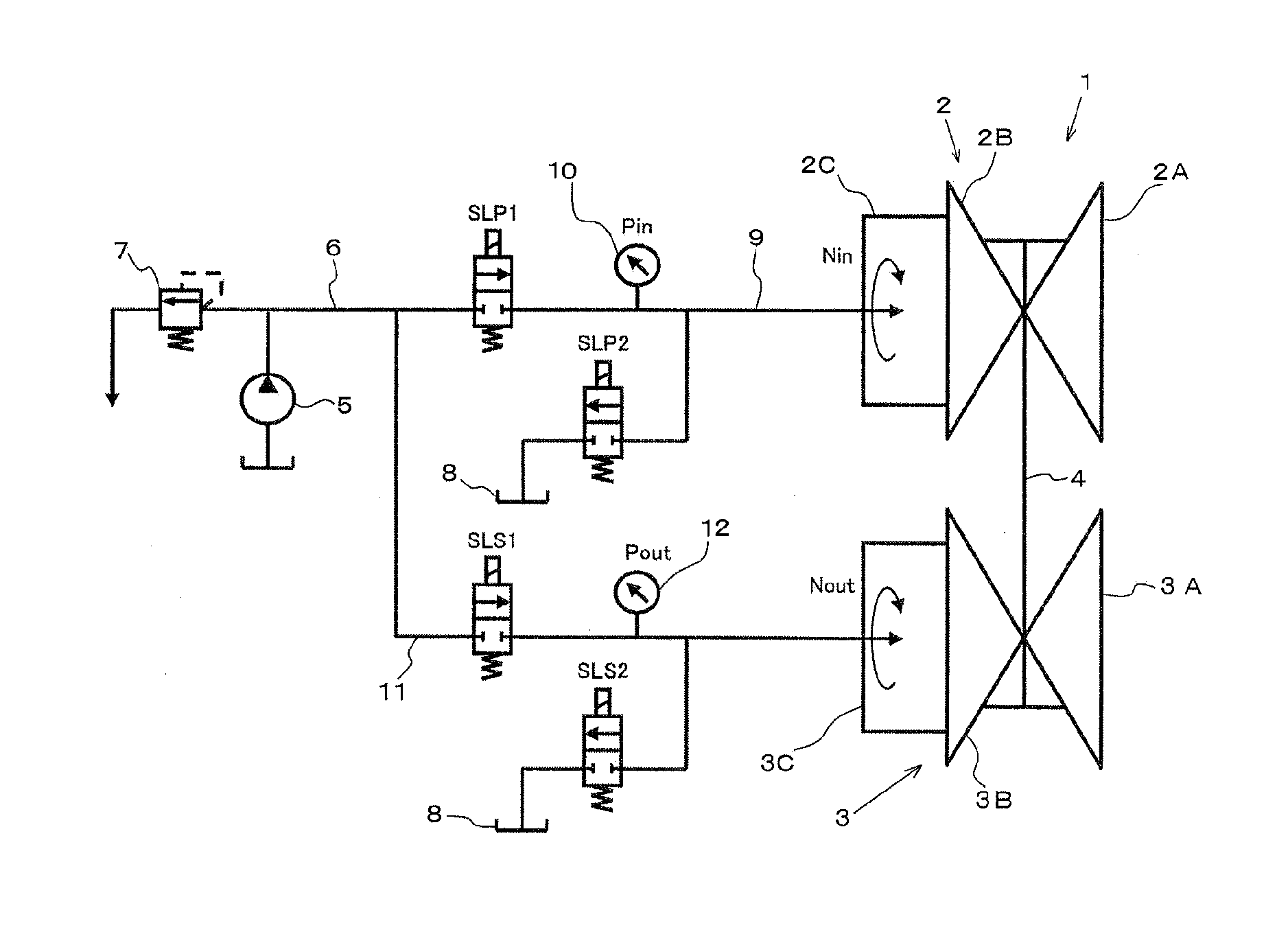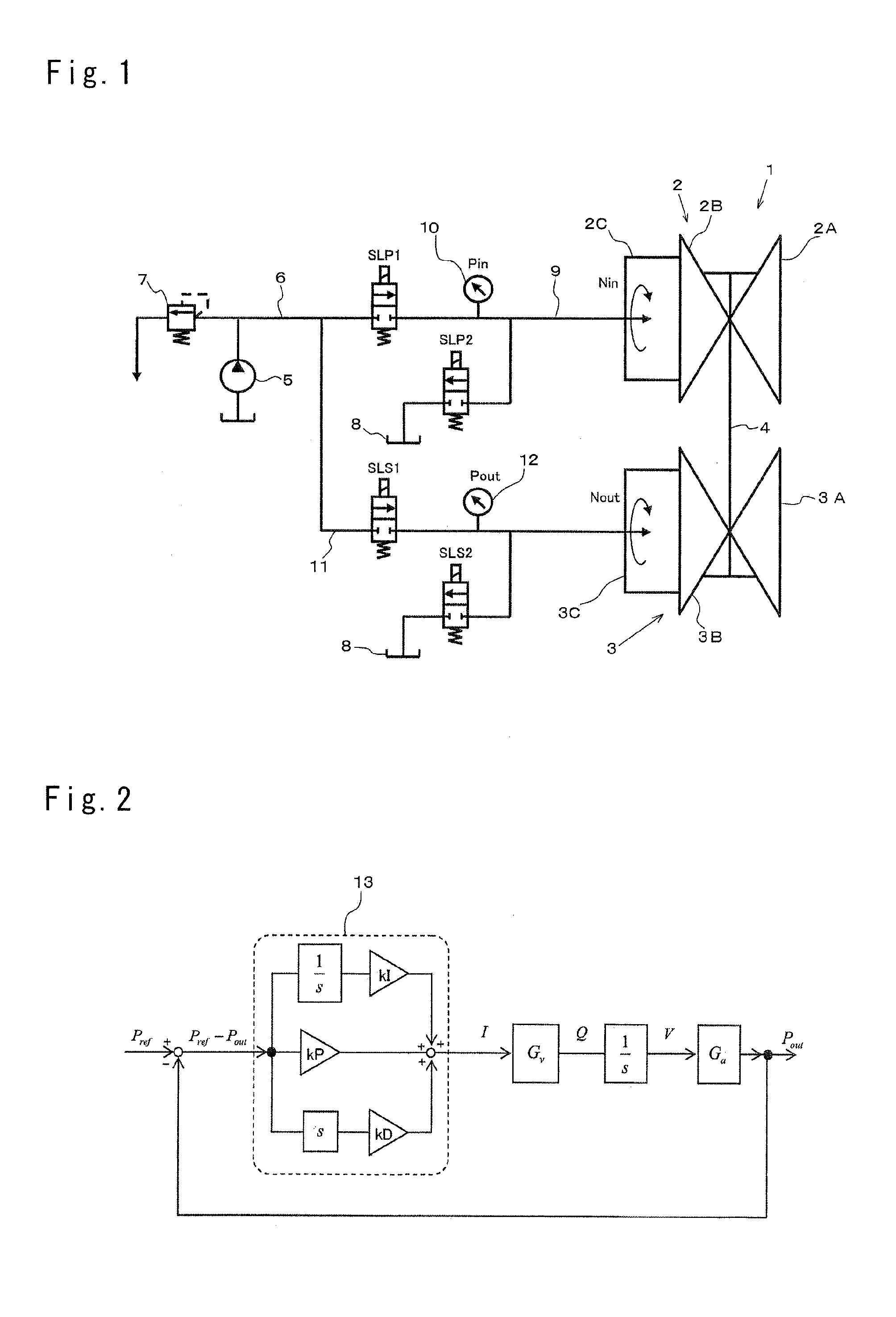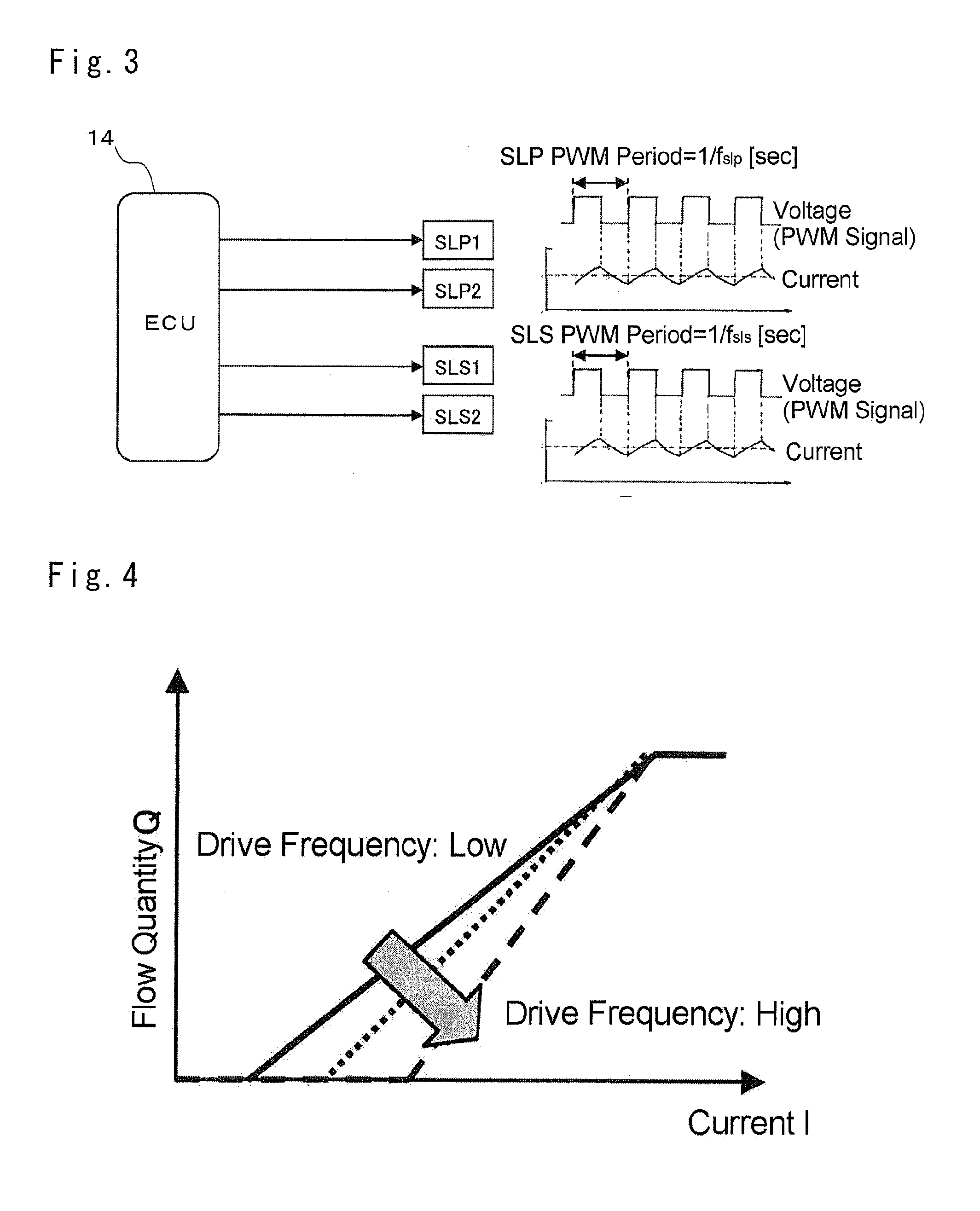Hydraulic control system for automatic transmission
a control system and automatic transmission technology, applied in the direction of gearing control, gearing element control, belt/chain/gearing, etc., can solve the problems of significant fluctuation of hydraulic pressure, worsening of pressurized fuel pulsation, and affecting the operation of automatic transmission, so as to reduce control, the effect of reducing the frequency of drive signal
- Summary
- Abstract
- Description
- Claims
- Application Information
AI Technical Summary
Benefits of technology
Problems solved by technology
Method used
Image
Examples
Embodiment Construction
[0031]For example, the present invention is applied to an automatic transmission such as a belt-driven continuously variable transmission. Referring now to FIG. 1, there is shown a structure of the belt-driven continuously variable transmission 1. As shown in FIG. 1, the belt-driven continuously variable transmission 1 is comprised of a primary pulley 2 as a drive pulley, a secondary pulley 3 as a driven pulley, and a belt 4 running between those pulleys 2 and 3. Specifically, the primary pulley 2 is comprised of a fixed sheave 2A integrated with a rotary shaft (not shown), and a movable sheave 2B allowed to move closer to and away from the fixed sheave 2A. Sheaves 2A and 2B have inwardly facing conical surfaces to form a belt groove. In addition, the movable sheave 2B is provided with a hydraulic chamber 2C on its back side (i.e., on an opposite side of the conical surface) for hydraulically pushing the movable sheave 2B toward the fixed sheave 2A.
[0032]The secondary pulley 3 is st...
PUM
 Login to View More
Login to View More Abstract
Description
Claims
Application Information
 Login to View More
Login to View More - R&D
- Intellectual Property
- Life Sciences
- Materials
- Tech Scout
- Unparalleled Data Quality
- Higher Quality Content
- 60% Fewer Hallucinations
Browse by: Latest US Patents, China's latest patents, Technical Efficacy Thesaurus, Application Domain, Technology Topic, Popular Technical Reports.
© 2025 PatSnap. All rights reserved.Legal|Privacy policy|Modern Slavery Act Transparency Statement|Sitemap|About US| Contact US: help@patsnap.com



